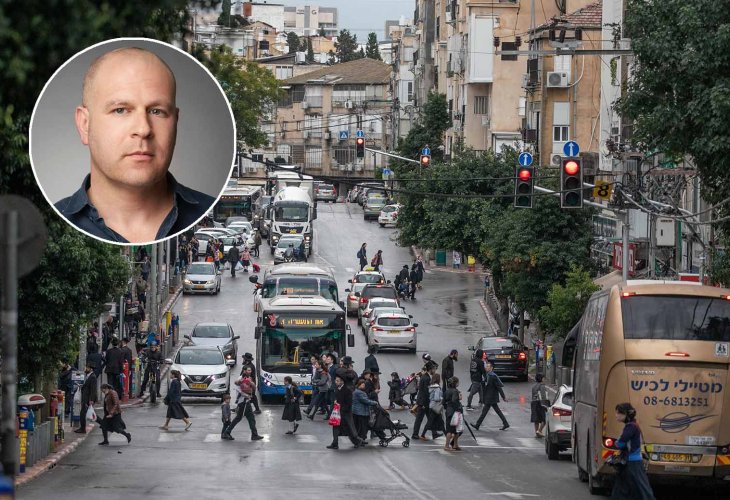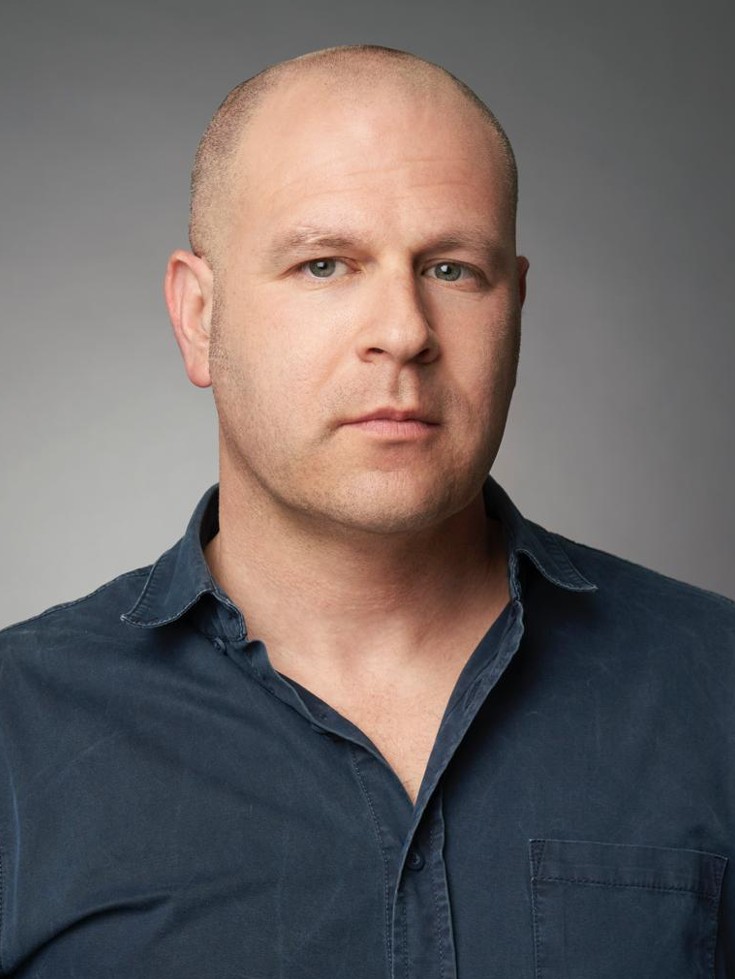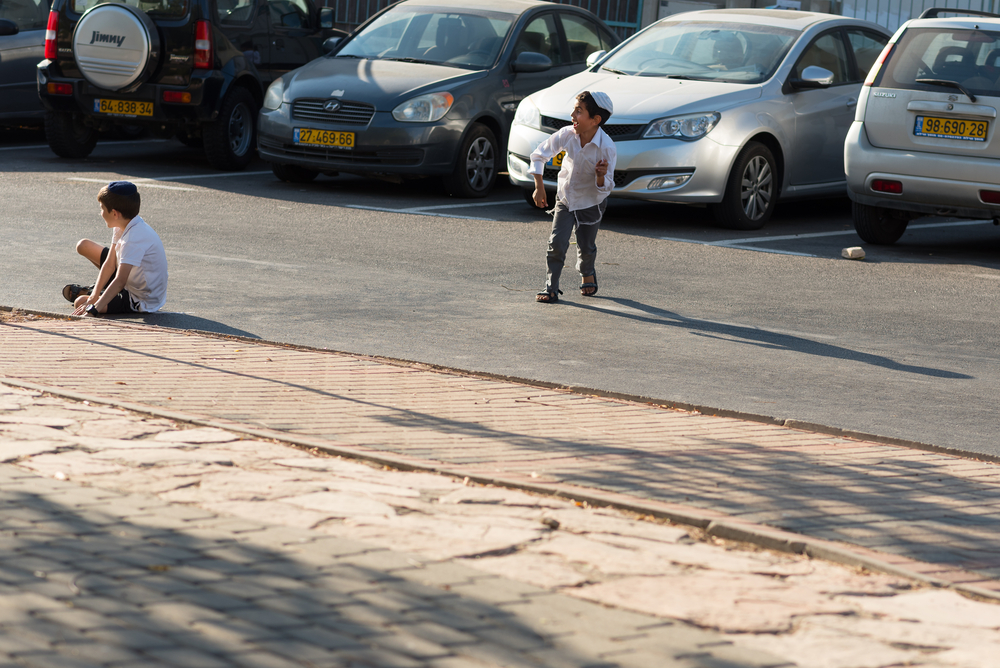Or Yarok Executive: 'Israel Has Neglected the Fight Against Road Accidents'
Or Yarok was established to combat road accidents. In an interview with Hidabroot, the organization's deputy director discusses the state's response to road accidents, the challenges faced by drivers in the Haredi community, and driving culture in the Arab sector.
 (Photo: Yossi Aloni / Flash 90)
(Photo: Yossi Aloni / Flash 90)All of us have encountered the frequent monotone reports in the media about "serious road accidents." Every week, numerous road accidents occur nationwide, some of which are fatal and claim lives. In one such tragic accident about two decades ago, a young man named Ran Naor was killed, prompting his parents to establish 'Or Yarok' in 1997 to fight against road accidents.
After another week where lives were lost in road accidents, we meet Or Yarok's deputy director, Oz Dror. Approaching his fiftieth year, he says he's always wanted to influence citizens' lives. Choosing Or Yarok was a simple decision for him. "Because of its importance, our organization has been fighting road accidents for 25 years," he states.
Dror has no doubt about the importance of the organization. "When Or Yarok was founded, 500 people were killed annually across the country. Today, that number is significantly lower, under 300, which is still a lot. That's precisely why we established the organization: to reduce the annual number of casualties from road accidents."
The Ninth Leading Cause
Road accidents rank ninth on the list of leading causes of death in Israel. They are responsible for more deaths than flu and pneumonia combined. Nearly 300 people die annually from road accidents, far surpassing the number of terror attack fatalities.
In the past, Israel's population was much smaller, which meant fewer annual casualties, about 200 people per year. Over the decades, with population and driver number growth, this changed. The annual death toll surged, reaching over 700 per year in the mid-'70s. The rise was due to more cars, more driving, and a lack of safety measures like seat belts and airbags.
With the introduction of safety measures in vehicles, deaths dropped to around 400 per year on average. The following years saw an increase to around 500 deaths annually, then a leap to more than 640 per year. In the past decade, there was a dramatic drop to 290 annual deaths at the beginning of the current decade. Dror attributes some of this reduction to Or Yarok's activities.
Asked how they combat road accidents, Dror responds: "We work on several levels, all focused on raising awareness. We try to influence decision-makers so they can strengthen the police to be more active in combating road accidents — with more power and enforcement capabilities. We also advocate for better infrastructure. We combine this with in-depth research that examines the data and highlights issues and solutions.
 (Credit: Omri Levy)
(Credit: Omri Levy)"I want to emphasize that the organization is non-political," he quickly adds. "We don't deal with right and left; we focus solely on saving lives, which we see as the utmost value."
How do you increase road accident awareness?
"With public officials, we send materials that highlight the issues and necessary corrections. Additionally, the organization runs many programs tailored for the general public at any age — whether young children in kindergartens or older people. The work is Sisyphean and ongoing.
"Since Israel is one of the countries where more children are harmed than most countries worldwide, we focus a significant part of our activities on childhood and even kindergarten ages. We visit kindergartens and convey the importance of not running into the road and road safety awareness through various means, whether through games or dedicated dances — all designed to instill in them the importance of keeping safe by avoiding running into the road.
"Teaching young children has a dual benefit," Dror believes. "We gain their cooperation now and instill the understanding of the importance of safety for the next 10 years."
Or Yarok doesn't focus solely on kindergarten ages. "Within the organization, we interact with all population groups using methods suitable for them: with young people and soldiers, we discuss alcohol consumption and the significant risk to themselves and those around them if they drive under the influence. With older people, we focus on the complexities accompanying senior age — the slowness, which causes many accident victims to be elderly. This method, presenting relevant topics to each population, ultimately raises overall awareness and helps prevent road accidents."
The Challenge: Children
As an organization dealing with this for two decades, how would you define driving culture in Israel?<\/strong><\/p> "Israeli drivers drive like any other drivers, but in Israel, each population faces its own challenges, making it more complex to evaluate overall." What challenges do drivers face in Haredi cities?<\/strong><\/p> "Haredi cities are characterized by many children on the streets. As such, the danger of children being harmed is high. Therefore, we propose to the state and local municipalities to adapt road conditions to this population. This is especially important because in a child-dense area, one must consider a child's natural behavior: if a friend calls to them from across the street, they won't hesitate before running. A child won't recognize the approaching engine noise and is small enough that drivers might not see them clearly. These factors make the challenge in Haredi cities particularly complex.<\/p> "For this reason, we recommend adding more speed bumps to slow drivers in children-populated areas. This is critical because, supposing a driver travels at 50 km/h and a child runs onto the road, the chances of the child surviving are lower. However, at 25 km/h, there might be no accident at all, or the child might not be injured significantly." "Another challenge drivers face is the 'Bein Hazmanim' period," Dror explains, demonstrating surprising familiarity with Haredi terms. "Our research indicates this is the primary period the Haredi public drives, often by drivers renting cars for the period or part of it. These drivers, many of whom don't drive most of the year, are less accustomed to the steering wheel and often unfamiliar with the areas they drive for vacations — northern and southern Israel. We see a need to raise awareness around this issue." At this point, Dror emphasizes that he doesn't see a significant difference between Haredi and secular drivers. "Every driver is an individual and must be cautious," he quickly adds, pointing out that "Haredi cities rank low on the list of cities affected by road accidents, so they are definitely not dangerous. The contributing factor is the relatively low number of vehicles in these cities, compared to non-Haredi cities where many households have two or even three vehicles. Regarding this matter, it's essential to say that public transportation is especially safe — more so than private vehicles." The significant challenge in driving culture belongs, without a doubt, to the Arab population. How does Or Yarok view this?<\/p> "The Arab community constitutes about 20 percent of the population, but its members are killed at a rate of thirty percent — ten percent more than statistically expected," Dror cautiously replies. "The state hasn't invested enough budgets in them, so all aspects of education, society, advocacy, and infrastructure in this community need significant improvement." However, Dror agrees it's a social issue: "Beyond that, the police hardly enter Israeli Arab areas where many accidents occur, often involving motorcycle riders, young drivers, and trucks. This leads to the conclusion that it is, as stated, a social issue, an educational issue. If we take, for example, yard accidents — where a father runs over his son in the courtyard during parking or leaving the house — such incidents rarely happen in Jewish settlements with organized parking. Added to this is the frustration in the Arab community toward symbols of government and their feeling of living in their territory, seen in practices like driving with loud music, no seat belts, and extreme speeds. This inevitably results in more road accidents, some fatal." How would you define Israel's situation compared to the world?<\/p> "Our situation isn't good," he sighs. "Looking at the last European Union report on road accident data from the past decade, we see Israel lagging behind European countries. While EU countries have significantly reduced road accident fatalities, thanks to a focused fight against road accidents, Israel remains behind. This point is especially problematic given a country like Greece, which achieved a fifty percent reduction in road accidents." What are the causes of this?<\/p> "The main reason for Israel's lack of success is insufficient action. Israel doesn't invest enough budgets in the field and has neglected the fight against road accidents. Even decisions that were made and supposed to be implemented get stuck eventually. For example, if the state committed to transferring 550 million shekels to the National Road Safety Authority as part of a national plan to fight road accidents announced by the government — a much lower amount of just 100 million shekels was actually received by the authority." "Another significant problem concerns enforcement. Across Israel, there are only 250 patrol cars of the traffic police," Dror surprises. "Here too, the numbers were supposed to be much higher according to government announcements, standing at 500 patrols. The field of speed cameras in the country is also insufficient. Throughout Israel, there are only about a hundred speed cameras." Or Yarok's deputy director has no kind words for the outgoing Minister of Transportation, Merav Michaeli. "A plan submitted to Minister Michaeli sets clear targets to reduce road accident fatalities and injuries by 50 percent within about 15 years — not an especially ambitious but very feasible goal. Currently, we just need to allocate funds and start moving in that direction." Practically, what do you demand from the State of Israel?<\/p> "We call on the state to improve infrastructure, and we know where there is an urgent need to improve — simply because we are familiar with areas where many people have been killed or could be. We demand the addition of police patrols, which is crucial because when a driver or passerby sees a police car, they become more cautious. The presence of patrols in an area deters and prevents illegal overtaking or excessive speed." "Moreover, it's important to incentivize citizens to add safety systems to their vehicles. All these actions aren't our invention," Dror emphasizes. "There are countries worldwide doing this year after year, and if we talked about European countries — this is their way of fighting road accidents. We simply need to learn from them and apply this on the ground. Or Yarok has a long-term plan incorporating all these areas precisely, where and when to invest, and the system must invest accordingly. Unfortunately, every transportation minister changes the goals of their predecessors and doesn't truly advance programs for citizens' benefits." In conclusion, about a year and a half ago, an acquaintance of mine drove on Route 90 and ended his life in a terrible accident. He was only twenty then. It's assumed you are familiar with this road's problem.<\/p> "Indeed. This road, stretching from the Jordan Valley to the Arava Junction, claims a heavy toll yearly. About 17 people die on it annually — more than one per month. Regrettably, I can say that more than ten people will likely die there again next year, heaven forbid. This road is a transportation artery connecting north and south, where any mistake could cause a fatal accident. Many trucks travel on this road; there's an urgent need to refurbish it, add two lanes for each direction, and establish a rigid barrier so vehicles do not accidentally drift into the opposite lane. In short, this road must be safe, and the state only needs to invest. Hopefully, they will do that. My hope is that the government realizes that this investment pays off, as more people will move to this area, opening up the Arava region, and, of course, saving lives and preventing further family sorrow and suffering." (Photo: Shutterstock)
(Photo: Shutterstock)

